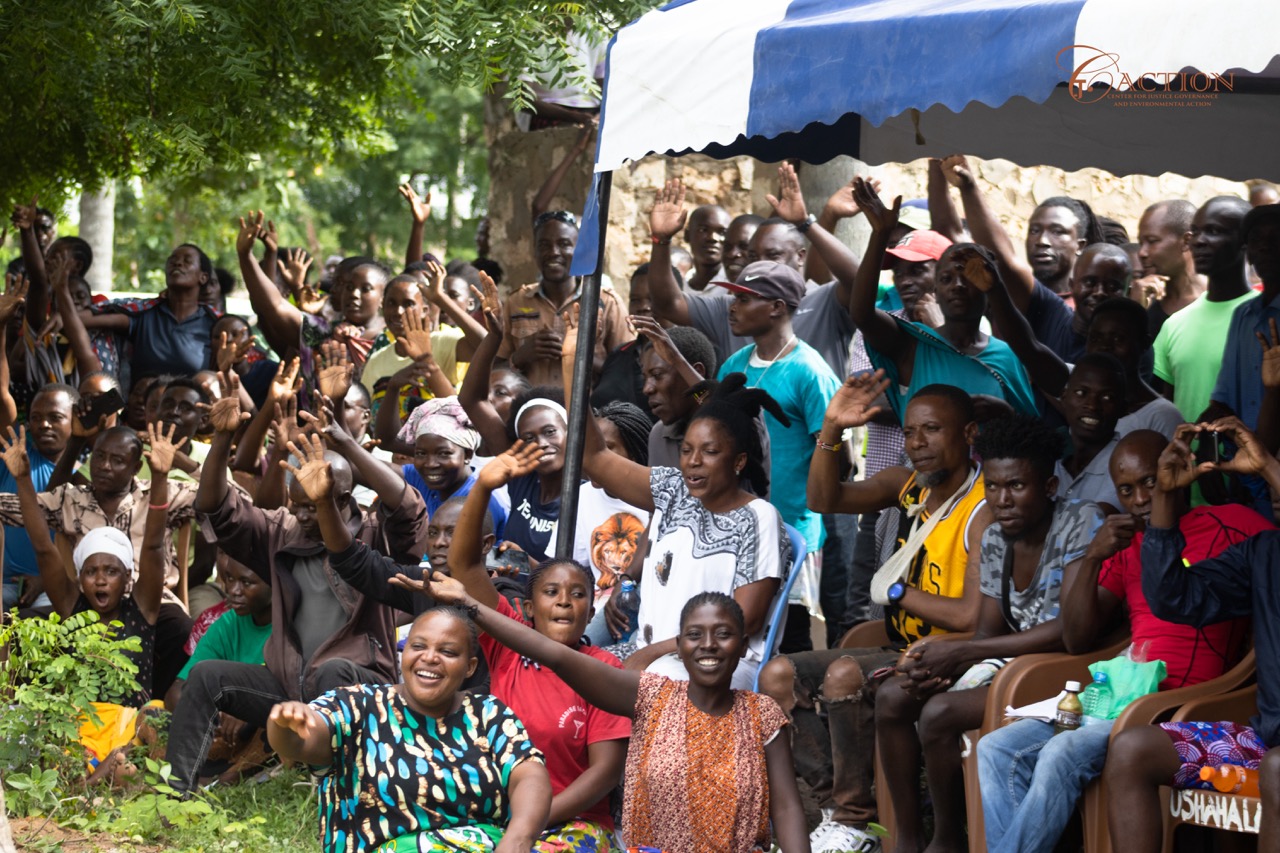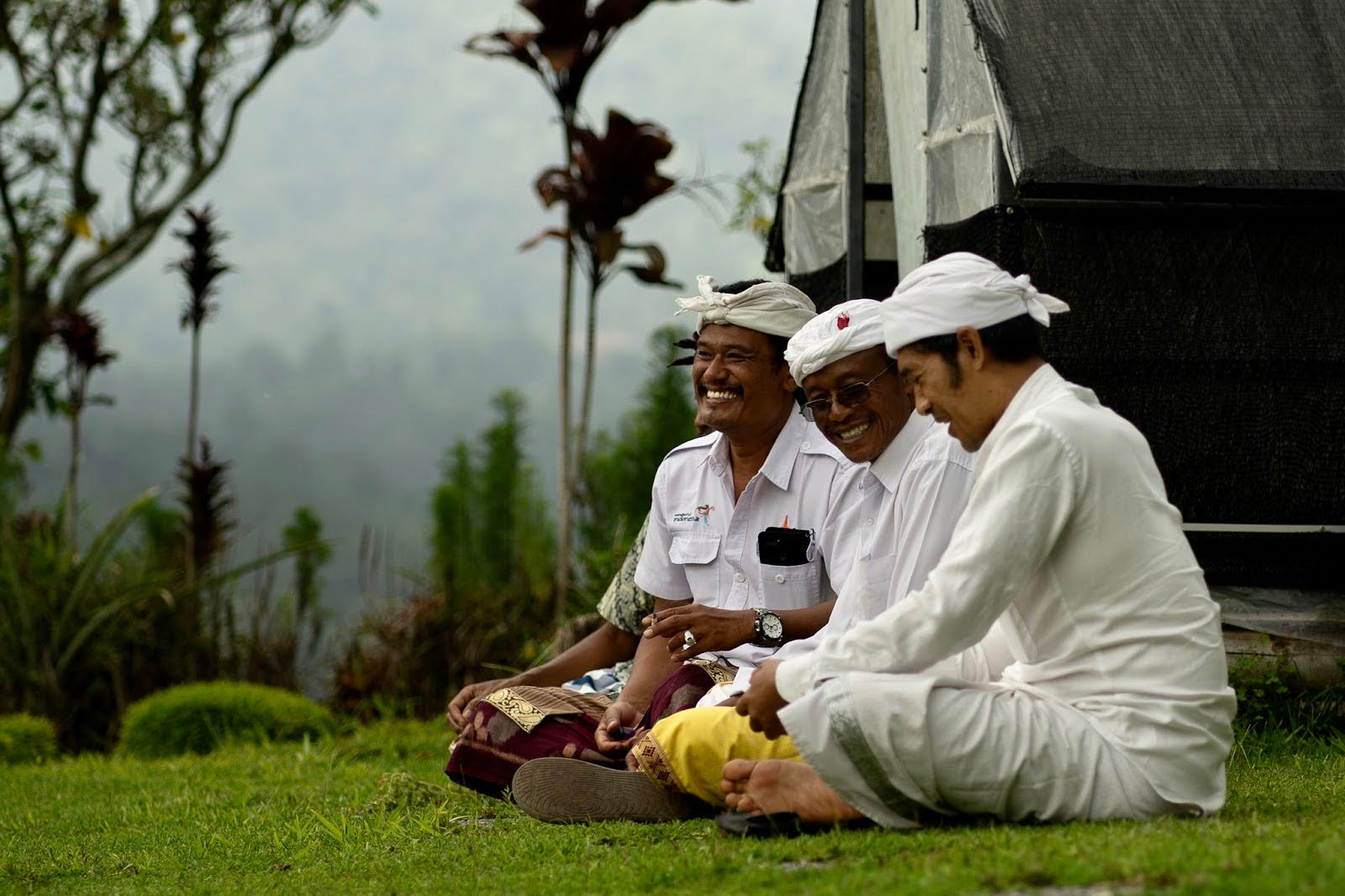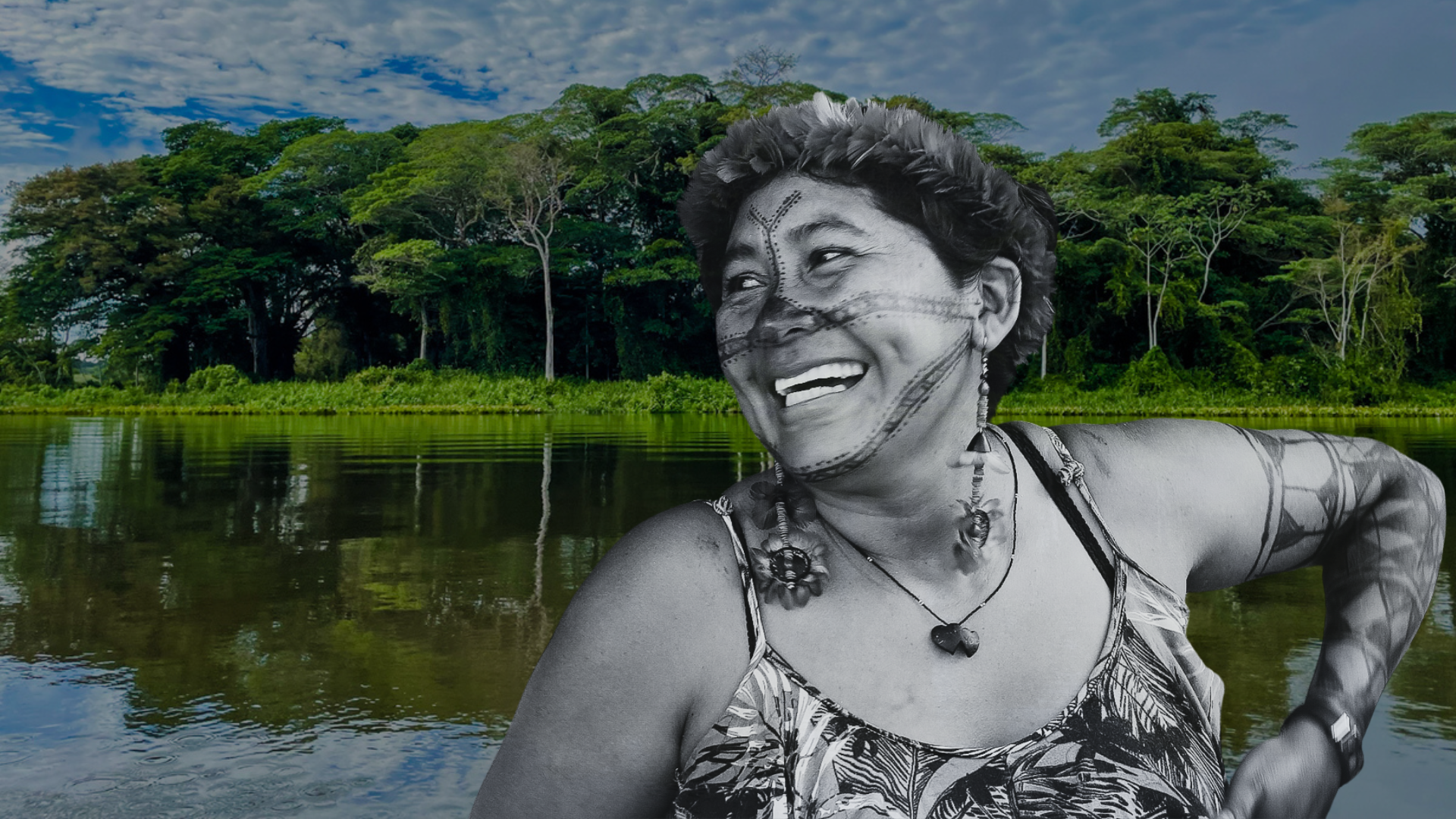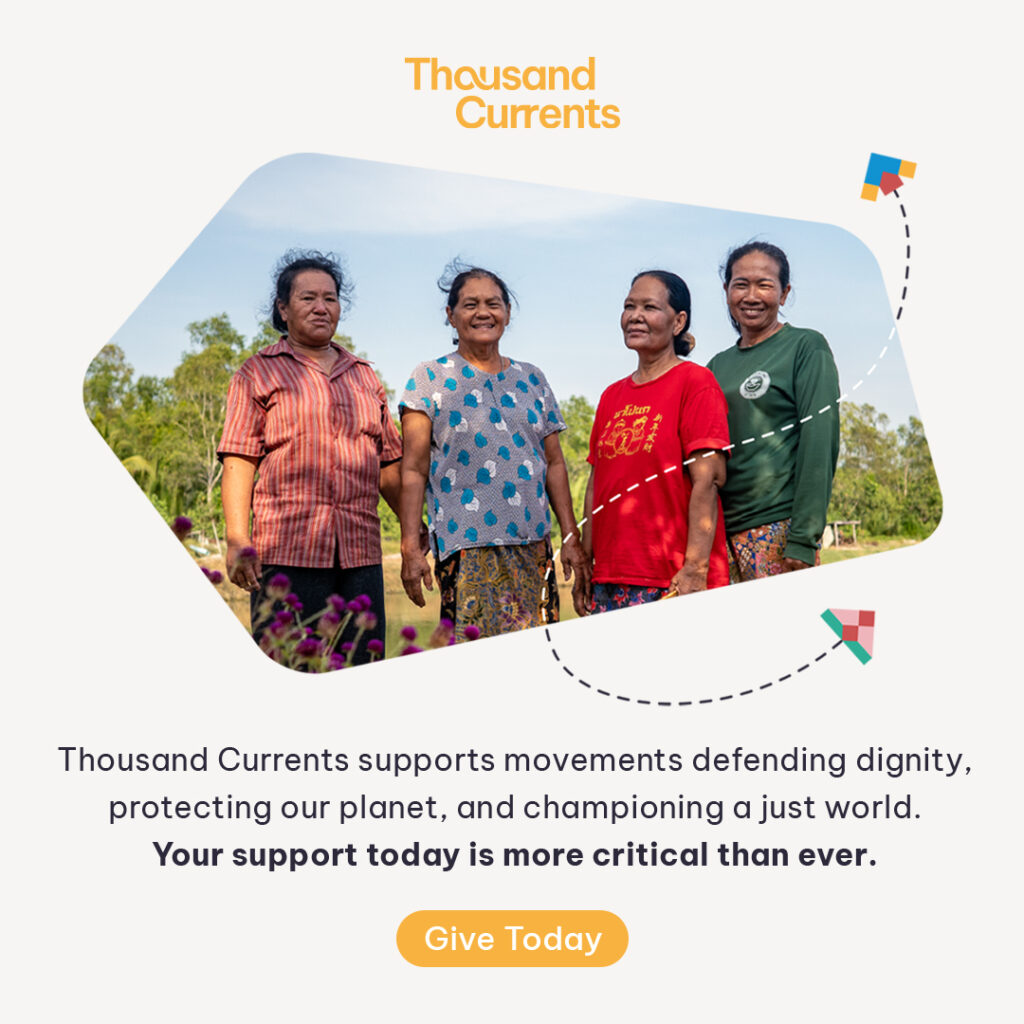Meet Elvira Sanchez
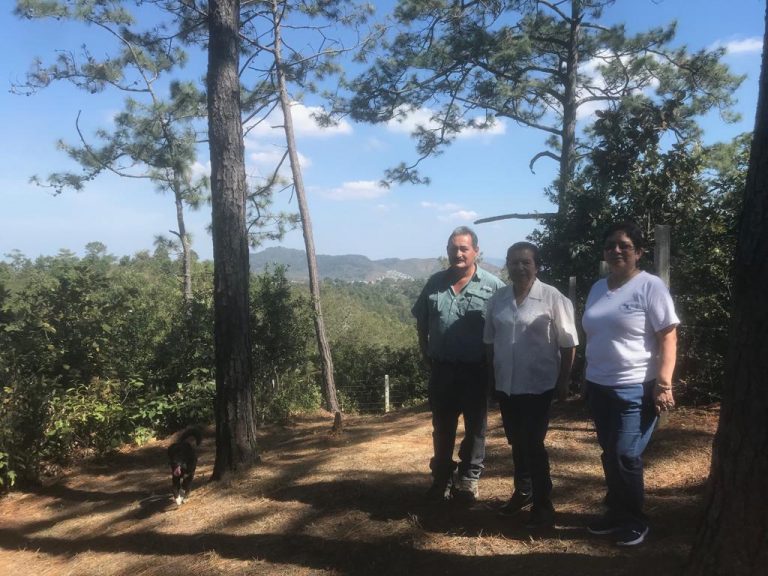
Mobilizing for Lasting Change Elvira Sanchez Toscano helped to found Institute for Overcoming Urban Poverty (ISMUGUA) over a decade ago with community groups in the urban shantytowns of Guatemala City. Through ISMUGUA, Elvira has helped develop housing improvement projects, youth leadership and women’s empowerment programs, educational scholarships as well as participating in a regional movement on climate change.
In July 2011, Elvira came to the United States to present the work of ISMU at the International Human Rights Funders Conference in New York and meet with ally organizations in New York, Washington D.C. and Seattle. Thousand Currents’ former Director of Programs, Katherine Zavala, conducted the following interview with Elvira.
What does it mean to you to come to share the work of ISMUGUA?
It means an opportunity to visibilize ISMUGUA and our work, but also it’s a moment in thinking about the work that we’re doing.
We are able to share our work with disaster preparedness. ISMUGUA helps to build people’s capacity to respond to disasters enables an immediate action from local, marginalized community members to respond to any difficult emergency situation.
We’re able to share what we’ve seen on a daily basis with the outcomes of our work – that students are continuing with their education, that people have reliable access to food, people who are living with HIV/AIDS are able to live dignified lives and have been able to go back to work.
I was comforted by people I’ve met who understand our importance of our work being linked to the grassroots – and our deep connection with community members. It’s a re-affirmation of the work that we do.
You presented a panel on climate justice at the Institute for Human Rights Funders Group. What did you share and what did you learn?
Climate justice is related to everything.
What is “climate justice”?
Climate justice is a vision and strategy for dissolving and alleviating the unequal burdens created by climate change. Climate justice advocates are working up from the grassroots to create solutions that ensure the right of all people to live, work, play, and pray in safe, healthy, and clean environments. Climate change’s effects expose social injustices that communities have suffered.
If we weren’t living in highly vulnerable conditions we wouldn’t already be feeling the effects of climate change, such as other countries in the Global North that haven’t felt it yet or as strongly.
It’s a moment that allows us to build and strengthen efforts to reinforce the demand for our right to housing, education and health that can mitigate the effects of climate change. ISMUGUA has initiated a community-led advocacy response in the form of a national housing law that addresses the right to dignified, healthy and adequate housing, as part of a long-term recovery strategy to disasters.
I shared what we’re doing to help those communities who face risks of disasters prepare and the importance of strengthening and building alliances so as not to work in solitude. Addressing climate change is a collective commitment.
On the climate justice panel, you met many people working in different countries, such as Haiti. What was that experience like?
What surprised me – or not – are the similarities with Haiti in terms of the impact of disasters.
I knew about some realities of Haiti, but it really hit home the vulnerability that the people are exposed to, which means that any disaster will have a more devastating impact.
It is important to use these opportunities to share knowledge and build lasting infrastructure, not only to provide immediate short-term solutions.
For example, if housing needs rebuilding let’s do so in a way so that homes are stronger and can withstand future disasters.
What has been surprising after all these disasters is that none of the international agencies have proposed to rebuild with the participation of people. The input of local people is still not valued in these situations.
They also don’t recognize that there already exists a process of people mobilizing and reconstructing their communities.
Can you tell us what ISMUGUA doing to address climate change?
We are training people from community-based organizations in the preparation of disasters.
We are also coordinating with the ministries of health and education, such as our work with 20 schools on developing school evacuation plans and family emergency plans.
The innovative part of the family evacuation plans is parents and the children themselves are involved in identifying the risks that the families are exposed to. They create family emergency plans so that in case of emergency everyone from children to parents know how to evacuate and to find meeting points.
We are also working to implement systems of early warning in the southern part of Guatemala City that affects people and the industry located in that area.
What does “partnership” mean to you ?
For us partnership means alliance.
The difference for us with Thousand Currents has been in the approach of work – this is why we respect and value the partnership of Thousand Currents. Thousand Currents’ support is key for us to have the diversity of programs that we do.
We are able to keep responding to the true needs of the community, such as right to education, housing improvements and survival in itself.
Not only through training, but also through small microcredits that have allowed families to have a basis to start and expand their small businesses, which then snowball into other effects for families and the larger community.
For example, a woman that used to work in the maquiladora became unemployed, but continued to participate in the women’s training program and as a result, established her own workshop in sewing.
The maquiladora where she worked gave her a sewing machine (usually these are old sewing machines that are maquilas provides as part of their payment to workers) and she was able to start her own business in sewing bedding and mosquito nets. She went on to distribute and sell her products to stores and big pavilions.
After tropical storm Agatha hit Guatemala City, ISMUGUA went to buy mosquito nets at the market, not knowing that the main supplier was their own program participant.
That same woman came in the afternoon to ISMUGUA office and said that the store had requested an urgent order of mosquito nets and that she needed a small loan to buy materials.
What a surprise for ISMUGUA to see who was going to fulfill their order! Of course ISMUGUA lent her the money so she could fulfill her order.
What have you appreciated during your trip to the U.S.?
I’ve enjoyed the diversity of organizations that we’ve visited and the number of people I’ve been able to meet. I’ve appreciated also the kindness and openness people have had to learn about our work in Guatemala, especially the interest in community work.
The processes of working directly with the communities, through organizing, are the columns that support the rest of the work we do.
Related Stories
